Speakers
(more to come)
Vanessa Siddle Walker
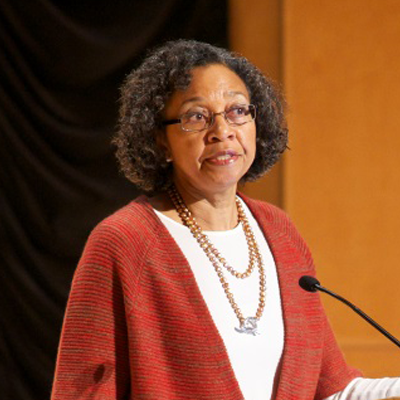
Vanessa Siddle Walker is the Samuel Candler Dobbs Professor of Educational Studies at Emory University. For 25 years, she has explored the segregated schooling of African American children, considering sequentially the climate that permeated the schools (Their Highest Potential), the network of professional collaborations that explains their similarity (Hello Professor), and the hidden systems of advocacy that sought equality and justice (Hidden Provocateurs, Under Contract). Her historical research has appeared in journals such as the Harvard Educational Review, Review of Education Research, American Educational Research Journal, Educational Research, and Teachers College Record, and her assessment of the implications of this history for contemporary settings appear in Facing Racism in Education, Racing Moral Formation, and Living the Legacy, Under Contract. Walker is a recipient of the Grawmeyer Award in Education, the AERA Early Career Award, three AERA SIG awards, and two awards from other professional associations. She lectures in a variety of community, national, collegiate, and international settings, including delivering the annual AERA Brown v. Board of Education Lecture in 2012. Walker received her training in education at the University of North Carolina at Chapel Hill and the Harvard Graduate School of Education.
Dr. Enrique Alemán, Jr.

Dr. Enrique Alemán, Jr., is Professor and Chair in the Department of Educational Leadership & Policy Studies at the University of Texas at San Antonio. His research agenda includes studying the impact of educational policies on Latinx and Chicanx students and communities, the utilization of Critical Race Theories (CRTs) in educational research, and the application of community-based research methods as a way of creating pathways to higher education. Dr. Alemán is the co-author of “Transforming Educational Pathways for Chicana/o Students,” a book published by Teachers College Press that describes the ten-year journey he and Dr. Dolores Delgado Bernal took in creating and sustaining Adelante, a university-school-community partnership in Salt Lake City, Utah. He has published articles in Harvard Educational Review, Race Ethnicity and Education, Educational Administration Quarterly, and Equity, Excellence and Education, as well as numerous chapters in edited books.
Between 2012-2014, Dr. Alemán served as an Assistant Vice President for Student Equity and Diversity at University of Utah. In late 2014, he executive produced and co-wrote Stolen Education, a documentary about the forgotten history of a little-known federal desegregation court case from the 1950s, Hernandez et al. v. Driscoll Consolidated School District (1957).
A first-generation college student, Dr. Alemán earned his Ph.D. in Educational Administration, with a concentration in Educational Policy and Planning, a doctoral certification in Mexican American Studies from the University of Texas at Austin. He has an undergraduate degree from St. Mary’s University in San Antonio, Texas, and a master’s degree from Columbia University’s School of International and Public Affairs in New York.
Detra Price-Dennis

Detra Price-Dennis is an Assistant Professor in Elementary Inclusive Education at Teachers College, Columbia University. As a teacher educator, Price-Dennis focuses her work on digital literacy pedagogies that seek to create and sustain equitable learning environments for students from marginalized populations. She is interested in the sociopolitical and sociocultural aspects of literacy learning and engagement among middle childhood students, as well as teacher preparation. Her research interests also include critical perspectives on children’s and young adult literature.
Ansley T. Erickson
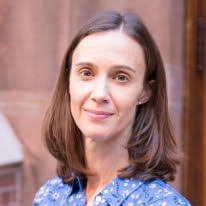
Ansley T. Erickson is a historian who focuses on educational inequality and urban and metropolitan history. Her first book, Making the Unequal Metropolis: School Desegregation and Its Limits (University of Chicago Press, 2016) tells the story of persistent inequality in Nashville, Tennesee's metropolitan school district during periods of segregation and desegregation. Her articles have appeared in the American Journal of Education, History of Education Quarterly, Journal of Urban History, and Teachers College Record (forthcoming).
With Professor Ernest Morrell of TC's Institute for Urban and Minority Education, Erickson leads the Educating Harlem project, a collaborative investigation into the history of education in 20th century Harlem. Educating Harlem includes an edited volume under contract with Columbia University Press, a digital history project, and youth participatory history program.
Erickson was a National Academy of Education/Spencer Postdoctoral Fellow in 2011-2013, and has held research fellowships from the Spencer Foundation and the Eisenhower Institute among others. She currently serves on the editorial board of the History of Education Quarterly and Theory and Research in Education, and was chair of the History of Education Society Outstanding Book Prize committee in 2015-16.
Earlier in her career, Erickson taught history and conducted ethnographic research in New York City schools and worked at two national education organizations. She also has experience in historical documentary film and public history consulting.
Manuel J. Fernandez

Manuel J. Fernandez currently serves as the founding Head of school at the Cambridge Street Upper School in Cambridge, MA. He is the founder and President of the ManDez group, a consultant group that works with private and public schools, community groups and workplace institutions providing consultation and training on issues related to workplace climate, team-building, diversity in the workplace, cultural proficiency, equity and inclusion, anti-bias and multicultural education, school leadership and organizational development. He has worked for over thirty-years in public education as a counselor, a teacher, a K-8 assistant principal, a high school and middle school principal. He was the director of the Wayland METCO voluntary integration program and President of the METCO Directors’ Association. He has served as an adjunct professor at the University of Massachusetts / Dartmouth and Northeastern. He is co-founder and former executive director of (EMI) Empowering Multicultural Initiatives, a professional development collaborative of suburban school districts committed to social justice in schools.
His leadership work in the area of cultural proficiency in schools has been featured in the Teaching Tolerance magazine, at the National Center for Race Amity conference and on the Cambridge Day weekly news website.
He holds a Bachelor’s degree from UMASS Dartmouth and a Master’s degree from UMASS Boston. He is a graduate of the National Institute of School Leadership and of the Boston Principal Fellows Program. He has received many awards and recognitions for outstanding educational leadership and social justice advocacy.
Matt Gonzales

Matt Gonzales is the School Diversity Project Director for New York Appleseed, a non-profit social justice center which advocates for equity of access and the fair allocation of resources to schools and neighborhoods in New York City and its greater metropolitan area. In his work, he focuses on community engagement and policy advocacy. He supports student organizing through a group called IntegrateNYC4Me to advocate and articulate their interests and desires for policy change. He also organizes ASID, the Alliance for School Integration and Desegregation, a citywide group of parents, educators, students, and other advocates across the city to push the DOE to prioritize diversity in New York City schools. He supports and trains educators in culturally responsive pedagogy and works with a number of community school districts in developing and implementing integration plans. Prior to his role with Appleseed, he was a graduate student at Teachers College, Columbia University where he earned a Masters of Arts in Education Policy. He has written and studied extensively on the issue on racial and socioeconomic integration, and has personal experiences both as an educator and a student working and learning in segregated schools in Los Angeles.
Sonya Douglass Horsford

Sonya Douglass Horsford is Associate Professor of Education Leadership and Senior Research Associate at the Institute of Urban and Minority Education (IUME) at Teachers College, Columbia University. Her research focuses broadly on the history and politics of race, inequality, and leadership in U.S. education and has been funded by the Spencer Foundation and published in Educational Administration Quarterly, Journal of School Leadership, Teachers College Record, Theory Into Practice, International Journal of Education Management, Urban Education, and The Urban Review. She is editor of three books including New Perspectives in Education Leadership: Exploring Social, Political, and Community Contexts and Meaning (Peter Lang, 2010) and author of Learning in a Burning House: Educational Inequality, Ideology, and (Dis)Integration (Teachers College Press, 2011), which received a 2013 American Educational Studies Association Critics’ Choice Award. Prior to joining Teachers College, Horsford served on the education leadership faculty at George Mason University and University of Nevada, Las Vegas, where she also served as Senior Resident Scholar of Education at The Lincy Institute. Current projects explore the paradox of “race” in education research and leadership, Black education and leadership studies, and the politics of equity, diversity, and the school superintendency
Jamila Lyiscott

Jamila Lyiscott is currently a Postdoctoral Fellow at Teachers College, Columbia University within the Institute for Urban and Minority Education (IUME) where her research and praxis focus on the intersections of race, education, and social justice. The recently awarded Cultivating New Voices among scholars of color fellow also serves a teacher educator, spoken word artist, community organizer, consultant and motivational speaker locally and internationally. Her scholarship and activism work together to prepare educators to sustain diversity in the classroom, empower youth, and explore, assert, and defend the value of Black life. As a testament to her commitment to educational justice for students of color, Jamila is the founder and co-director of the Cyphers For Justice (CFJ) youth, research, and advocacy program, apprenticing inner-city youth, incarcerated youth, and pre-service educators as critical social researchers through hip-hop, spoken word, and digital literacy. She is currently preparing a book manuscript about her work within Predominantly White Institutions across the nation, helping educators to confront white privilege within and beyond the classroom.
Jamila was featured on Ted.com where her video, “3 Ways to Speak English,” was viewed over 3.7 million times. She was later invited by TED to write a piece for the 2017 inauguration. She has been featured in Spike Lee’s “2 Fists Up,” on NPR, Huffington Post, Lexus Verses and Flow, Upworthy, The Root, and many other media outlets. Her poetry and scholarly work have been published in Review of Research in Education, English Education, English Journal, and Teachers and Writers Collaborative Magazine. Through her community, scholastic, and artistic efforts, Jamila hopes to play a key role in forging better connections between the world of academia and communities of color outside.
David E. Kirkland

Dr. David E. Kirkland is the Executive Director of The NYU Metropolitan Center for Research on Equity and The Transformation of Schools. He has also been described as an activist and educator, cultural critic and author. A leading national scholar and advocate for educational justice, Dr. Kirkland hold a PhD and JD.
A Detroit native, his transdisciplinary scholarship explores a variety of equity related topics: school climate and discipline; school integration and choice; culture and education; vulnerable learners; and intersections among race, gender, and education. With many groundbreaking publications to his credit, he has analyzed the cultures, languages, and texts of urban youth, using quantitative, critical literary, ethnographic, and sociolinguistic research methods to answer complex questions at the center of equity and social justice in education.
Dr. Kirkland taught middle and high school for several years in Michigan. He’s also organized youth empowerment and youth mentoring programs for over a decade in major U.S. cities such as Detroit, Chicago and New York. He currently leads efforts to enhance education options for vulnerable youth throughout New York City, and beyond.
Dr. Kirkland has received many awards for his research and educational advocacy work, including the 2016 AERA Division G Mid-Career Scholars Award, the 2008 AERA Division G Outstanding Dissertation Award. He was a 2009-10 Ford Foundation Postdoctoral Fellow, a 2011-12 NAEd/Spencer Foundation Postdoctoral Fellow, and is a former fellow of the National Council of Teachers of English (NCTE) Research Foundation's “Cultivating New Voices among Scholars of Color” program. In addition to several other boards, he currently serves as a trustee for the Research Foundation of the National Council of Teachers of English.
A Search Past Silence: The Literacy of Black Males, the fifth book that Dr. Kirkland has authored, is a TC Press bestseller and winner of the 2015 Daniel E. Griffiths Research Award, the 2014 AESA Critics Choice Award, and the 2014 NCTE David H. Russell Award for Distinguished Research in the Teaching of English. He is also co-editor of the newly released Students Right to Their Own Language, a critical sourcebook published by Bedford/St. Martins Press. Named by Ebony magazine as one of the most brilliant scholars in the U.S., Dr. Kirkland has been a pivotal intellectual voice promoting educational justice in the U.S. and abroad.
Mariana Souto-Manning
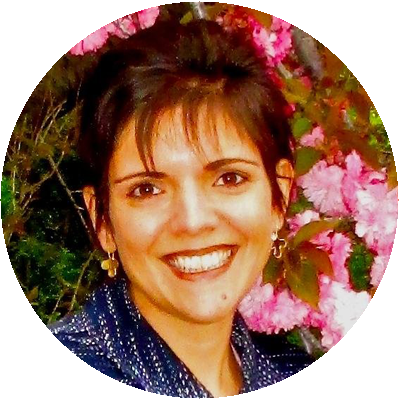
Dr. Mariana Souto-Manning is a professor at Teachers College, Columbia University. She is a former preschool and primary grades teacher and now works with teachers, schools, and districts throughout the world supporting their development of culturally relevant, multicultural, racially just, and critical teaching. She is committed to preparing teachers to design and carry out fully inclusive, culturally relevant, and racially just education, so that they can successfully work with young children of color with and without dis/abilities, from low-income, immigrant, and bilingual backgrounds in rich ways. Mariana is author of the award-winning book Multicultural Teaching in the Early Childhood Classroom: Tools, Strategies and Approaches (Teachers College Press, 2013) and co-author of the newly released Reading, Writing, and Talk: Inclusive Teaching Strategies for Diverse Learners (Teachers College Press, 2016).
Felicia Mensah

Dr. Felicia Moore Mensah is Professor of Science Education and past Program Coordinator of the Science Education Program at Teachers College, Columbia University. Appointed as Senior Advisor to the Provost for Student Affairs, Professor Mensah is serving as a liaison between administration and the student body. Professor Mensah received her doctorate in Science Education from Florida State University (May 2003) and postdoctoral fellow in the Center for Curriculum Materials in Science at Michigan State University (June 2003-July 2005). Professor Mensah’s research in science education focuses on diversity, equity, and science teacher identity as well as gender issues and teacher professional development in STEM education.
Ali Michael

Ali Michael is the co-founder and director of the Race Institute for K-12 Educators, and the author of Raising Race Questions: Whiteness, Inquiry and Education (Teachers College Press, 2015), winner of the 2017 Society of Professors of Education Outstanding Book Award. She is co-editor of the bestselling Everyday White People Confront Racial and Social Injustice: 15 Stories (2015, Stylus Press) and The Guide for White Women who Teach Black Boys (2018, Corwin Press). She also sits on the editorial board of the journal Whiteness and Education. Ali teaches in the mid-career doctoral program at the University of Pennsylvania’s Graduate School of Education, as well as the Graduate Counseling Program at Arcadia University. In the 2017-18 school year, she will hold the Davis Visiting Professorship at Ursinus College. Ali’s article, What do White Children Need to Know About Race?, co-authored with Dr. Eleonora Bartoli in Independent Schools Magazine, won the Association and Media Publishing Gold Award for Best Feature Article in 2014. She may be best known for her November 9, 2016 piece What Do We Tell the Children? on the Huffington Post, where she is a regular contributor. For more details see www.alimichael.org.
Ernest Morrell

Ernest Morrell is the Macy Professor of English Education and Director of the Institute for Urban and Minority Education (IUME) at Teachers College, Columbia University. He is also an elected Fellow of the American Educational Research Association a past-president of the National Council of Teachers of English, and an appointed member of the International Literacy Association’s Research Panel. In 2016, Ernest was ranked among the top 100 university-based education scholars in the Annual EdWeek RHSU Edu-Scholar Public Influence Rankings. Ernest is also the recipient of the 2017 Divergent Award for Excellence in 21st Century Literacies. His scholarly interests include: Anti-colonial practices in the Teaching of English; Education and the African Diaspora, Participatory Action Research, Urban Teacher Development, and critical media literacy. Ernest has written more than 75 articles and book chapters that have appeared in publications such as Research in the Teaching of English, Teachers College Record, the Journal of Teacher Education, Reading Research Quarterly, English Education, the English Journal, the Journal of Adolescent and Adult Literacy, and Learning, Media, and Technology. He has authored eight books including New Directions in Teaching English, Doing Youth Participatory Research, The Art of Critical Pedagogy, Critical Literacy and Urban Youth, and Critical Media Pedagogy: Teaching for Achievement in City Schools, which was awarded Outstanding Academic Title for 2014 by Choice Magazine of the American Library Association. Ernest has earned numerous commendations for his university teaching including UCLA’s Department of Education’s Distinguished Teaching Award. He received his B.A. in English Literature from the University of California at Santa Barbara, and his teaching credential, his M.A. and his Ph.D. in Language, Literacy, and Culture from the University of California, Berkeley where he was the recipient of the Outstanding Dissertation award in 2001. Ernest is chair of the Planning and Advisory Committee for the African Diaspora Consortium and he sits on the Executive Boards of LitWorld, the Center for Education Equity, and the Education for Democracy Institute.
Django Paris

Django Paris is Associate Professor in the Department of Teacher Education and Core Faculty in the African American and African Studies Program at Michigan State University. His teaching and research focus on understanding and sustaining languages, literacies, and lifeways among youth of color in the context of demographic and social change. He is particularly concerned with educational and cultural justice as outcomes of inquiry and pedagogy. In spring 2017, Paris published his third book project entitled, Culturally Sustaining Pedagogies: Teaching and Learning for Justice in a Changing World. He has also published in many academic journals, including the Harvard Educational Review and Educational Researcher. In January 2018, Paris will join the faculty at the University of Washington, Seattle as the inaugural Banks Professor and Director of the Banks Center for Educational Justice.
Carolyn J. Riehl

Carolyn J. Riehl is Associate Professor in the Department of Education Policy and Social Analysis at Teachers College, Columbia University. She is a sociologist of education with special interests in organizational dynamics in schools and school systems, diversity and equity in schooling, public engagement, policies and practices for instructional management, and education leadership. She has been a high-school English teacher and has held faculty appointments at the University of Michigan, Eastern Michigan University, and the University of North Carolina at Greensboro. Dr. Riehl co-chaired an American Educational Research Association task force whose work culminated in a book co-edited with William Firestone, A New Agenda for Research in Educational Leadership. Her grant-funded research work has included an evaluation study of principal preparation programs with innovative university–school district relationships, a study of teachers’ use of information on students, a program evaluation of dropout prevention services, and a study of place-based, cross-sector collaborations for education. Her work has appeared in journals including Educational Researcher, Sociology of Education, American Journal of Education, Review of Educational Research, American Educational Research Journal, Educational Administration Quarterly, and in numerous edited volumes.
Yolanda Sealey-Ruiz

Dr. Yolanda Sealey-Ruiz, (Ph.D., New York University) is as an Associate Professor of English Education at Teachers College, Columbia University. Yolanda is a former Research Associate with the NYU Metropolitan Center for Urban Education, and has worked for Business Week, The New York Times, and New York University in Marketing and Promotion positions. Her research interests include racial literacy development in urban teacher education (with a specific focus on the education of Black and Latino males), literacy practices of Black girls, and Black female college reentry students. Yolanda’s work has appeared in several top-tier academic journals. Yolanda is co-editor of three books including (with Chance W. Lewis and Ivory A. Toldson) Teacher Education and Black Communities: Implications for Access, Equity, and Achievement (IAP). At Teachers College, she is founder and faculty sponsor of the Racial Literacy Roundtables Series where for eight years, national scholars, doctoral, and pre-service and in-service Master’s students, and young people facilitate informal conversations around race and other issues involving diversity and teacher education for the Teachers College/Columbia University community. She is also the co-founder of the Teachers College Civic Participation Project which concerns itself with the educational well-being of young people involved with the juvenile justice and foster care systems in New York. Yolanda and two of her students appeared in Spike Lee’s “2 Fists Up: We Gon’ Be Alright” (2016), a documentary about the Black Lives Matter movement and the campus protests at Mizzou.
Erica N. Walker
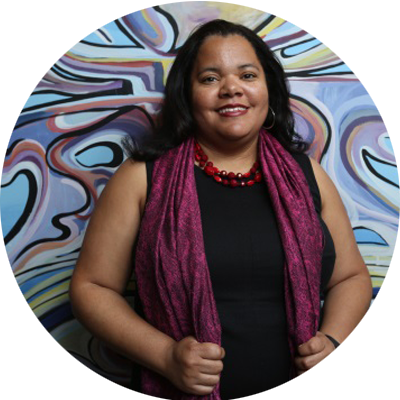
Erica N. Walker Professor of Mathematics Education at Teachers College, Columbia University. An award-winning former public high school mathematics teacher from Atlanta, Georgia, she earned her doctorate in education from Harvard University. Her research focuses on the social and cultural factors as well as educational policies and practices that facilitate mathematics engagement, learning, and performance, especially for underserved students. Recognized by the Mathematical Association of America and the Association for Women in Mathematics for her scholarship and practice, she collaborates with teachers, schools, districts, organizations, and media outlets to promote mathematics excellence and equity for young people. Her work has been published in journals such as the American Education Research Journal, Journal for Research in Mathematics Education, Educational Leadership, and the Urban Review. Professor Walker serves on several editorial boards and is the author of two books: Building Mathematics Learning Communities: Improving Outcomes in Urban High Schools (published by Teachers College Press in 2012) and Beyond Banneker: Black Mathematicians and the Paths to Excellence, published by SUNY Press in 2014.
Amy Stuart Wells

Amy Stuart Wells, the Director of the Reimagining Education Summer Institute and a Professor of Sociology and Education at Teachers College, Columbia University. She is also the Director of the Center for Understanding Race and Education (CURE) and co-Director of the Public Good, a non-profit public school support organization for racially and ethnically diverse schools. In February, 2016, Wells and her colleagues published a Century Foundation report titled, How Racially Diverse Schools and Classrooms Can Benefit All Students. For the last 25 years, her research and writing has focused broadly on issues of race and education and more specifically on educational policies such as school desegregation, school choice, charter schools, and tracking and how they shape and constrain opportunities for students of color. Wells’ on-going research project, “Metro Migrations, Racial Segregation and School Boundaries,” examines urban and suburban demographic change and the role that public schools and their boundaries play in who moves where. The final report from the suburban research phase of that project, Divided We Fall: The Story of Separate and Unequal Suburban School Districts 60 years after Brown, was published in Spring 2014; related articles were published in the Washington Post Answer Sheet, The Atlantic CitiLab, and Long Island Newsday.
Wells is also the recipient of several honors and awards. She is a member of the National Academy of Education (2014 inductee), a Fellow of the American Educational Research Association (2013 inductee), 2007-2008 Fellow at Stanford’s Center for Advanced Study in the Behavioral Sciences; a 2001-02 Fellowship from the Carnegie Corporation's Scholars Program; the 2000 Julius & Rosa Sachs Lecturer, Teachers College-Columbia University; and the 2000 AERA Early Career Award for Programmatic Research. In 1999-2000 she was a Russell Sage Visiting Scholar. In 1995-96 she was a National Academy of Education-Spencer Foundation Post-doctoral fellow, and 1990-91 she was a Spencer Dissertation Fellow.
Jeffrey M. Young
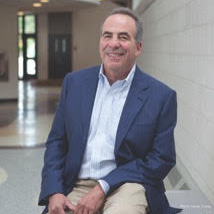
Jeffrey M. Young is a Professor of Practice in Education Leadership at Teachers College, Columbia University. Before joining the faculty at TC, Dr. Young served as Superintendent of Schools in Cambridge, MA from 2009 through 2016, following terms as Superintendent in Newton, Lexington and Lynnfield, MA. He began his career in education as an English teacher, Department Chair, and Curriculum Coordinator in Brookline, MA. Dr. Young was a member of the Adjunct Faculty at the Boston University School of Education and has delivered talks at various institutions of higher learning as well as at the International Education Conference in Beijing, China. Among his distinctions, he has been recognized by the Massachusetts Association of School Superintendents with the President’s Award; Brandeis University with the Levitan Award for Leadership; and the Cambridge NAACP with the Martin Luther King, Jr. Award for his work “to provide an effective, innovative education to ALL of Cambridge’s children regardless of race or class.” Dr. Young received a B.A. in English and American Literature from Brandeis University, a Masters Degree in Education from Tufts University, and a Doctorate in Education from the Harvard Graduate School of Education. As a new member of the TC faculty, Dr. Young is struggling with his identity as a fan of the Boston Red Sox.
Vanessa Siddle Walker

Vanessa Siddle Walker is the Samuel Candler Dobbs Professor of Educational Studies at Emory University. For 25 years, she has explored the segregated schooling of African American children, considering sequentially the climate that permeated the schools (Their Highest Potential), the network of professional collaborations that explains their similarity (Hello Professor), and the hidden systems of advocacy that sought equality and justice (Hidden Provocateurs, Under Contract). Her historical research has appeared in journals such as the Harvard Educational Review, Review of Education Research, American Educational Research Journal, Educational Research, and Teachers College Record, and her assessment of the implications of this history for contemporary settings appear in Facing Racism in Education, Racing Moral Formation, and Living the Legacy, Under Contract. Walker is a recipient of the Grawmeyer Award in Education, the AERA Early Career Award, three AERA SIG awards, and two awards from other professional associations. She lectures in a variety of community, national, collegiate, and international settings, including delivering the annual AERA Brown v. Board of Education Lecture in 2012. Walker received her training in education at the University of North Carolina at Chapel Hill and the Harvard Graduate School of Education.